Read our latest magazine articles
To close the academic year and start the summer off right, we have listed all our magazine articles from January to July 2024. So you can read them again at your leisure during the holidays. In each article, a UG researcher talks about their field.
Sovereign citizens hold up a mirror to the government
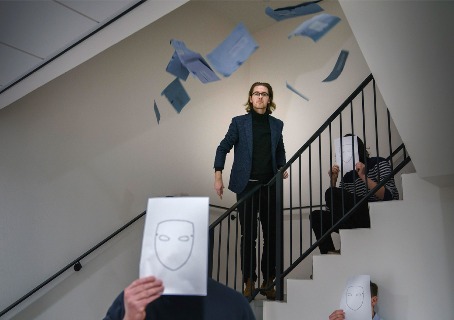
Luuk de Boer studies ‘sovereign citizens’, people who reject the government’s authority. For his research, he is staying in St. Louis, one of the most segregated cities in the US. The gap between rich and poor is immense. De Boer is not there for his sovereigns research specifically, although the US is certainly an interesting place in that respect, because the group of sovereign citizens on the other side of the pond is huge. Read more
Vocation or necessary evil?
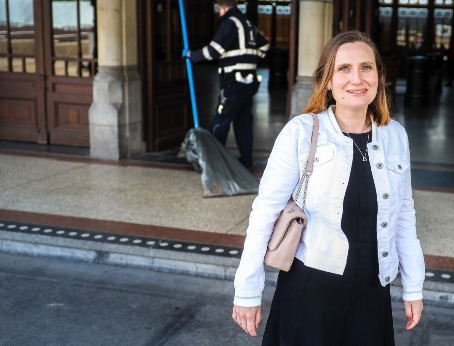
It is important to know how employees perceive their jobs, as Milena Nikolova discovered. The Professor of Economics of Wellbeing distinguishes three different types of work motivations: as a tool to earn money, as a step in your career, or as something that provides a sense of purpose. This classification explains approximately 40% of the differences in the effort we put in the workplace, or in our search for a new job. ‘Recognizing different work motivations can help employees become aware of what makes them happy.’ Read more
How to deal with microplastics in our daily life
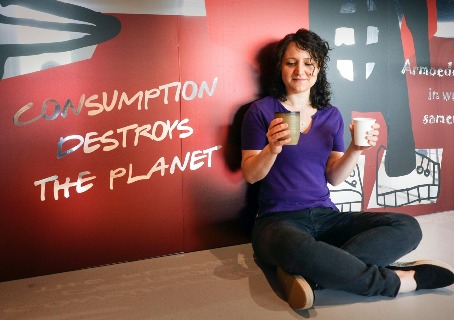
Microplastics are everywhere. These tiny pieces of plastic enter our bodies through the air that we breathe, the water we drink, and the food we eat. In her research, Irene Maltagliati, a PhD candidate in Health and Environmental communication and Scientific Coordinator at the Rudolf Agricola School, focuses on how we can be more aware of microplastics and change our behaviour. Read more
Researchers explain right to demonstrate to all and sundry
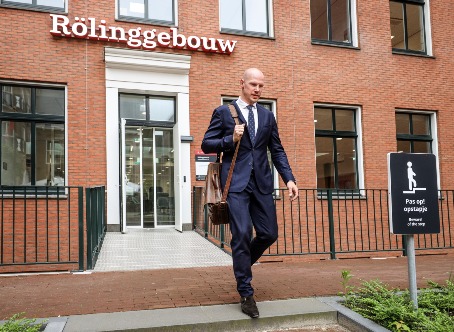
What exactly does the right to demonstrate entail? What may and must the government do in the event of demonstrations, and what rights and obligations do protesters have? Demonstration expert Berend Roorda receives questions on this subject almost daily from the media and legal practitioners, especially now that protests are very topical in the Netherlands. With a new website, he makes all knowledge and regulations accessible to everyone. ‘How wonderful is it that we can answer many legal questions about demonstrations on a website that is accessible and understandable for everyone? Read more
School transitions as a fresh start
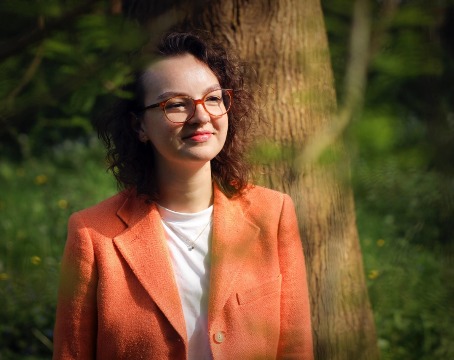
It is a vivid memory for her: the transition from primary to secondary school. At eleven years old, she nervously took the End of Primary Education Test, received a track recommendation, and oriented herself toward secondary schools. Growing up in Groningen, there were many schools to consider. The one closest to her had an informal atmosphere and a track specifically focused on arts that immediately caught her attention. However, as all her close friends from primary school were planning on attending a different school, she was worried that she would lose her friends, and that she would not fit in with her new peer group in secondary school. Now, almost twenty years later, Sofie Lorijn is studying peer relationships in the transition from primary to secondary school during her PhD. She talks about her findings. Read more
Students study possibilities of self-driving car
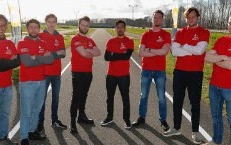
A group of thirteen students of the UG, Hanze UAS and Noorderpoort will compete this year in the RDW Self Driving Challenge (SDC) on 14 June. Contrary to last year, the students of the three educational institutions now form a team together, under the name University of the North. In addition, this year, they will participate in a new category in which they have to provide a car themselves. Team leader Stijn Kram explains more about this challenge and the preparation. Read more
‘Do not forget children's interests’
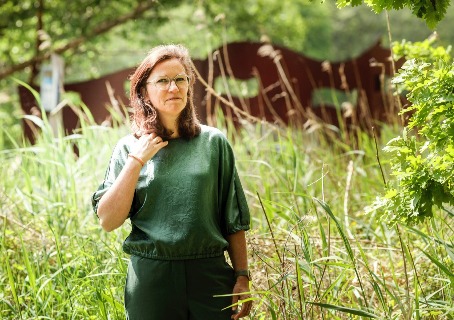
Whether it is about migration, the earthquake issues in Groningen, or placement in foster care, remedial educationalist Elianne Zijlstra emphasizes that the interests of children are often overlooked. With her research, she aims to change this. Read more
Those who do something wrong, deserve punishment. Right?
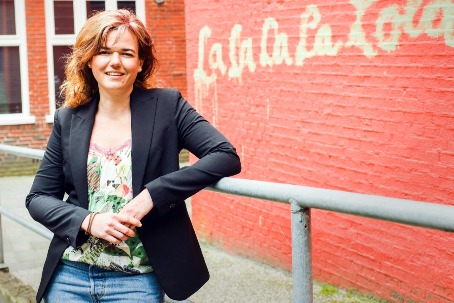
When exactly is someone responsible for their actions? And is punishment always the most constructive option? Philosopher Daphne Brandenburg argues for a little bit more nuance. According to her, we should pay more attention to the way in which we deal with children who do something that is not allowed. That can teach us a lot about how to hold adults responsible. And that might make the world a nicer place. Read more
‘The colourful cells of petals never get boring!
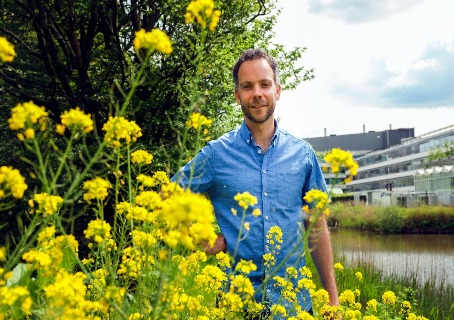
Most people will enjoy colours in nature. However, the interest of evolutionary biologist Casper van der Kooi goes much further: he studies how flowers, birds, butterflies, and beetles get their colours. He also studies how these colours are used to attract pollinators and sexual partners. ‘Colours are a wonderful way to visualize biodiversity. And I want to make the world — and especially the Netherlands — more biodiverse.’ Read more
Weatherman and honorary doctor Gerrit Hiemstra has a low tolerance for nonsense
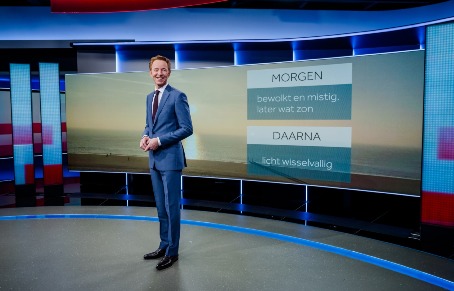
Weatherman with passion, knowledge, and a clear message: that is how many Dutch people know Gerrit Hiemstra, long-term presenter of the weather forecast at the end of the NOS news. He still is fascinated by weather phenomena and is trying to convey the seriousness of climate change, even if he is using a different platform these days. On 24 May, he will receive an honorary doctorate from the University of Groningen for his services to bringing climate change and its serious consequences to people’s attention. Read more
Learning to communicate in the operating theatre
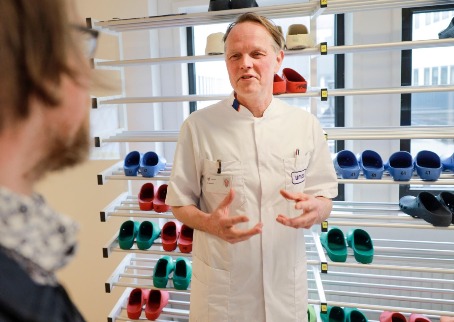
The characters: a surgeon and a doctor following specialty training (AIOS). The setting: an operating theatre and on the operating table lies a patient under anaesthesia. The AIOS is operating, the surgeon is supervising. Three cameras record what is happening with the goal of unravelling the mechanisms of on-the-job training. This is the research of a surprising academic duo: Mike Huiskes, associate professor of Communication Studies at the UG, and trauma surgeon-trainer Patrick Nieboer of the University Medical Center Groningen (UMCG). Huiskes: ‘This involves a lot more than just what is being said during the operation. It is about the individual as a whole.’ Read more
From battling against the water to living with the water
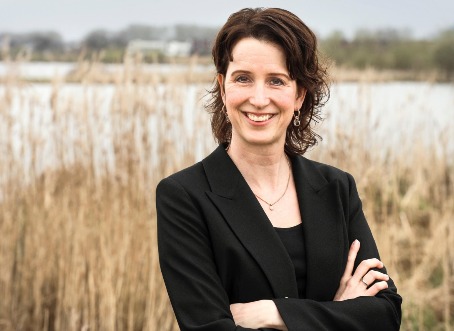
Extreme showers, heat waves, floods, and rising sea levels are all threats to our low-lying delta. Margo van den Brink, associate professor of Water and Planning, says that we should adapt our spatial design to the changing climate. This implies difficult choices have to be made because the space is limited and the needs are great. According to her, it can be called a transition: from ‘battling against the water’ to ‘living with the water’. Read more
Investors consider region a risk
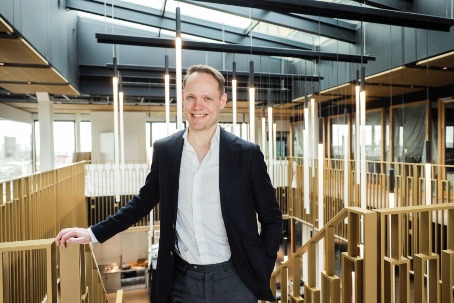
Property investments are proving to be an important explanation for the gap between large cities and the region, says Michiel Daams, assistant professor of Economic Geography of Real Estate Markets. He carried out a study on property investments in the United Kingdom and the United States. According to Daams, the same situation may apply to the Netherlands. ‘Since the financial crisis, investors have been stashing their cash under the mattress of the big cities, while the region lags behind.’ Read more
Kirsten van den Bosch: 'Connecting students with the work field really is achievable in every programme'
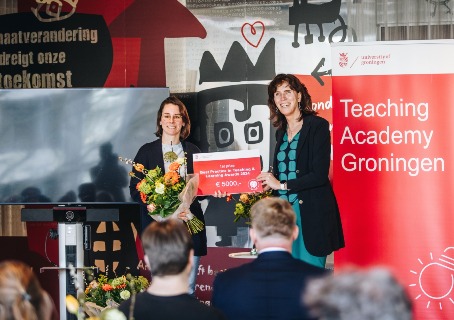
Connecting students with organizations to solve real problems within Academic Learning Communities. With this initiative, Dr Kirsten van den Bosch and her team won the Best Practice Award 2024. The entry convinced the jury because it is a nice fusion of theory and practice. The students are very pleased with the programme because they get to work on current problems early in their education, something they find very valuable. Read more
Is more data always better?
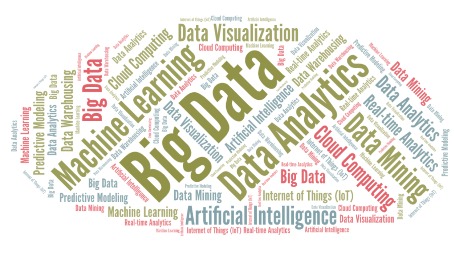
With the increasing availability of experimental and observational data, there is a substantial accumulation of information within scientific research. This Big Data is used to extract valuable insights and patterns from extensive and intricate datasets, which facilitates data-driven decision-making by providing timely and precise information. However, as the volume of data continues to grow exponentially, concerns arise regarding its potential pitfalls. Xiaoyao Han explores how the accumulation of data enriches our scientific understanding. Read more
Preventing the next depression
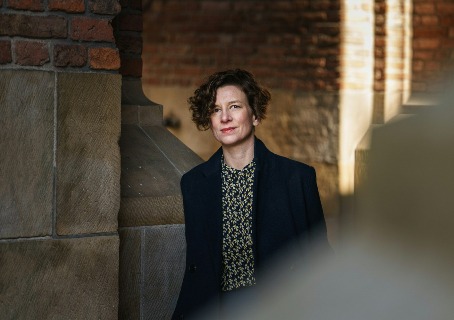
Someone who has suffered from depression in the past, has an increased risk of suffering from it again. Yet, this is often given little attention when treating any symptoms of depression. Marie-José van Tol , Professor of 'Mood and Cognition’, studies what people who are prone to depression can do themselves in order to prevent recurrence. Read more
VentureLab North helps researchers to develop succesful startups
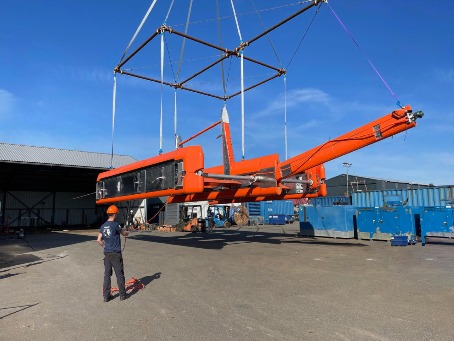
It has happened to many researchers. While working, you suddenly ask yourself: would this not be incredibly useful for people outside of my own research discipline? There are many ways to share the results of your research. For example, think of a popular science article, a TV interview, or your own podcast. If you are looking for something more long-term, you can also start a business. But how do you approach something like that? You can find the answer to this question at VentureLab North. Read more
The benefit of smaller portions: less snacking, less waste
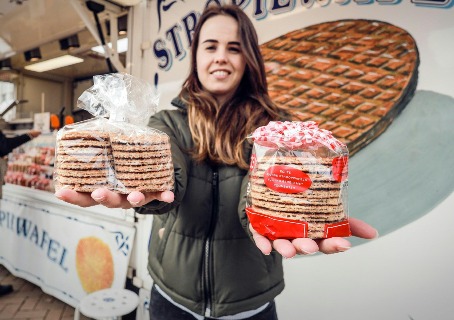
Oreo cookies and stroopwafels: Amber Werkman was working on a very tempting research topic these past years. The PhD student in marketing went in search of a solution to overconsumption and food waste. Her conclusion: consumers snack and waste less when they are free to choose their total portion based on smaller units. Read more
'Ordinary Joes can also be creative'
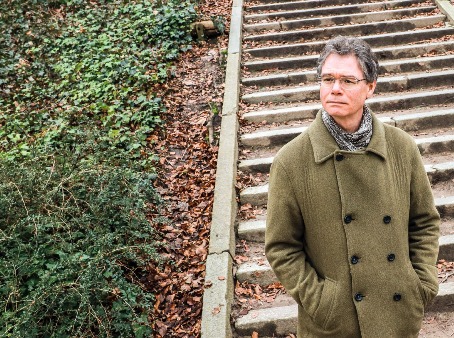
Creativity in the workplace is broader than you might think. Organisational psychologist Eric Rietzschel explores how innovative and practical ideas influence each other. Although creative ideas help us progress and contribute to a better world, they are often overlooked in the workplace due to risk aversion. However, creativity is not limited to artistic types; anyone can be creative, even with structure and simple projects. Read more
Bayu Jayawardhana is a pioneer in the world of control technology
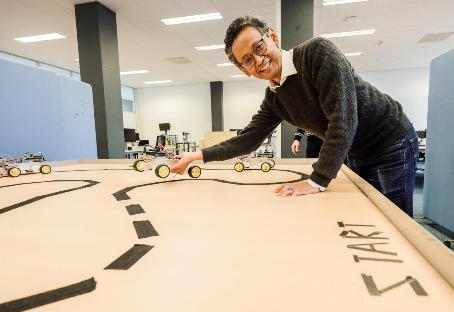
One moment he contributes to the development of a scientific instrument for an extremely large telescope, the next he is working on generating energy from the ocean: Bayu Jayawardhana moves effortlessly through the world of mechatronics and nonlinear control technology. He is a true pioneer in his field. What has he discovered so far? And how does he keep track of everything? And where can we see the applications? Read more
Azzopardi's algorithms are inspired by the brain
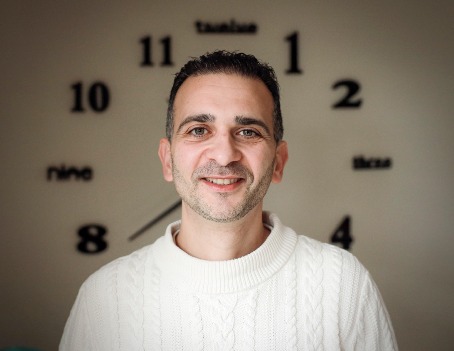
George Azzopardi, associate professor of Pattern Recognition at the Bernoulli Institute for Mathematics, Computer Science and Artificial Intelligence, balances his time equally between fundamental and applied research. As theme coordinator of ‘Applied AI’ at the Jantina Tammes School, he is dedicated to bridging the gap between science and practical societal applications. Read more
The puzzle pieces of a depression
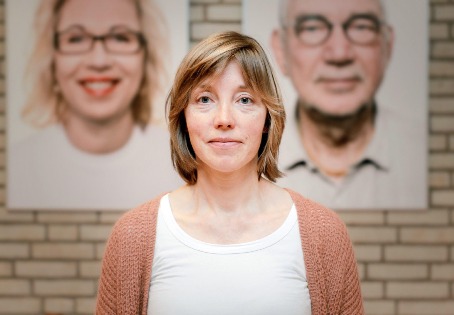
Why do some people develop a depressive disorder while others do not? That question keeps Hanna van Loo busy. She is currently doing a study that focuses on the role of genes and environmental factors in a depression. ‘There is no one depression gene. There are many genes that contribute to an increased risk of depression.’ Read more
Gaming: only the benefits of religion but not the drawbacks
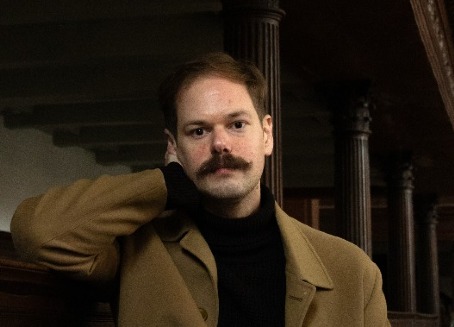
Lars de Wildt has discovered that video games surprisingly share many similarities with religion. He points out that game producers often use religious symbolism, which gamers can internalize. The intense experience of gaming can evoke feelings of religiosity. Games offer a world of aesthetics, community, and rituals without the obligations of traditional religion. De Wildt, a media studies lecturer, approaches gaming as a significant cultural phenomenon deserving of in-depth research, akin to literature or film. Read more
Sustainable behaviour? Information alone is not enough
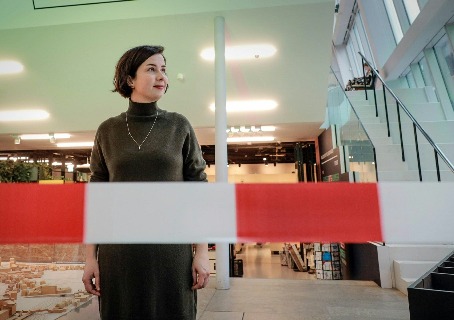
As a social and environmental psychologist, Josefine Geiger looks into what motivates people to act in environmentally friendly ways. According to her, if we manage to overcome the barriers we sometimes perceive, an individual could have a lot of impact. However, we need a little push. From others, so we can mirror them, and from those making the rules. But most of all: it needs to be positive so we stay motivated. Read more
Doing something good for the landscape
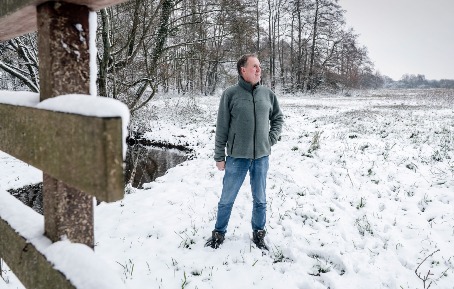
Professor of Landscape History Theo Spek delves into the stories that are hidden behind Dutch and European landscapes. His expertise – and that of his colleagues and students – is in high demand. ‘Our kind of knowledge is incredibly useful for all sorts of current issues.’ Read more
Autonomous weapons lower threshold to war
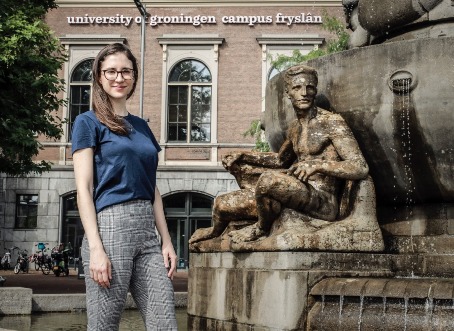
Killer robots? Self-firing drones? There is a strong suspicion that an autonomous weapon system is already in use in Libya. However, regulation is still lacking. PhD student Taís Blauth studies the legal and ethical questions raised by these weapons. Read more
Building life without DNA
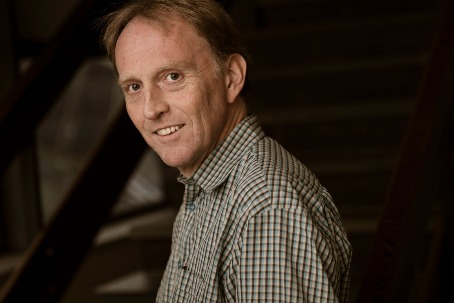
Sijbren Otto, Professor of Systems Chemistry, is working to create synthetic life in the laboratory. He recently received an ERC Synergy Grant of €3.4 million for his MINILIFE project. He, together with international partners, will use this to continue working on his ultimate goal: a chemical system that shows signs of life, but that is made up of entirely different molecules than life as we know it. Read more
| Last modified: | 23 September 2024 2.55 p.m. |
More news
-
16 December 2024
Jouke de Vries: ‘The University will have to be flexible’
2024 was a festive year for the University of Groningen. Jouke de Vries, the chair of the Executive Board, looks back.
-
10 June 2024
Swarming around a skyscraper
Every two weeks, UG Makers puts the spotlight on a researcher who has created something tangible, ranging from homemade measuring equipment for academic research to small or larger products that can change our daily lives. That is how UG...
